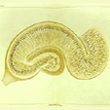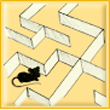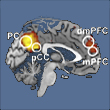Tuesday, 27 November 2012
Links on How Memory Works (continued)
 Research on human memory is such an important aspect of cognitive neuroscience today that a tremendous number of articles about memory research can be found on the Internet. So this week, I am continuing last week’s list of new links to articles about various aspects of how memory works—one of the sub-topics covered under the topic Memory and the Brain in The Brain from Top to Bottom. For each link, I provide a brief description of the article in question.
Research on human memory is such an important aspect of cognitive neuroscience today that a tremendous number of articles about memory research can be found on the Internet. So this week, I am continuing last week’s list of new links to articles about various aspects of how memory works—one of the sub-topics covered under the topic Memory and the Brain in The Brain from Top to Bottom. For each link, I provide a brief description of the article in question.
(For more background on how I compile these lists, see my earlier post on Links About Brain Anatomy.) (more…)
Memory and the Brain | Comments Closed
Thursday, 22 November 2012
Links on How Memory Works
 This week, as I have before in this blog, I am posting a set of new links to other web sites that discuss a subject covered in The Brain from Top to Bottom. For each link, I also provide a brief description of the content on the site in question.
This week, as I have before in this blog, I am posting a set of new links to other web sites that discuss a subject covered in The Brain from Top to Bottom. For each link, I also provide a brief description of the content on the site in question.
The subject this week is the sub-topic How Memory Works, under the topic Memory and the Brain. Research on human memory is such an important aspect of cognitive neuroscience today that the number of links on this topic on the Internet is enormous. I have therefore divided my selected links into two groups; I am posting 11 links here this week and will post another 11 next week. (more…)
Memory and the Brain | Comments Closed
Monday, 12 November 2012
Reasons Why We Curse

A few years back, the universality of swearing and curse words in all human languages attracted the attention of Harvard cognitive psychologist Steven Pinker. In his book The Stuff of Thought: Language as a Window into Human Nature, Pinker theorizes that the purpose of using swear words is to impose negative emotions on the people to whom we are talking, while stimulating primitive parts of their brain unbeknownst to them. Curse words appear to activate the brain’s right hemisphere more than the left, the basal ganglia (for generating them) and the amygdala (for perceiving them). (more…)
From Thought to Language | Comments Closed
Monday, 5 November 2012
Socio-Political Conflicts and Brain Imaging
 Until the start of the 21st century, brain-imaging techniques had been used chiefly to confirm the involvement of brain structures that had already been associated with well documented functions such as movement, vision, and language. But subsequently, as these non-invasive methods became more readily available, researchers began to use them to explore other, more complex functions. In this way, researchers have since discovered numerous neuronal circuits specifically associated with higher functions ranging from compassion to love, from meditation to intellectual pleasure.
Until the start of the 21st century, brain-imaging techniques had been used chiefly to confirm the involvement of brain structures that had already been associated with well documented functions such as movement, vision, and language. But subsequently, as these non-invasive methods became more readily available, researchers began to use them to explore other, more complex functions. In this way, researchers have since discovered numerous neuronal circuits specifically associated with higher functions ranging from compassion to love, from meditation to intellectual pleasure.
Recently, researchers have even demonstrated that Arabs’ and Israelis’ biases against each other were specifically correlated with activity in the precuneus (labelled PC in the image above), an area in the parietal cortex! The report on this brain-imaging experiment was published in 2010 by Emile Bruneau and Rebecca Saxe, of MIT, in Cambridge, Massachusetts. Dr. Saxe’s laboratory does research on Theory of Mind, in other words, the ability that people have to think about their thoughts, and in particular, to make hypotheses about other people’s thoughts, intentions, motivations, and beliefs. (more…)
The Emergence of Consciousness | Comments Closed







